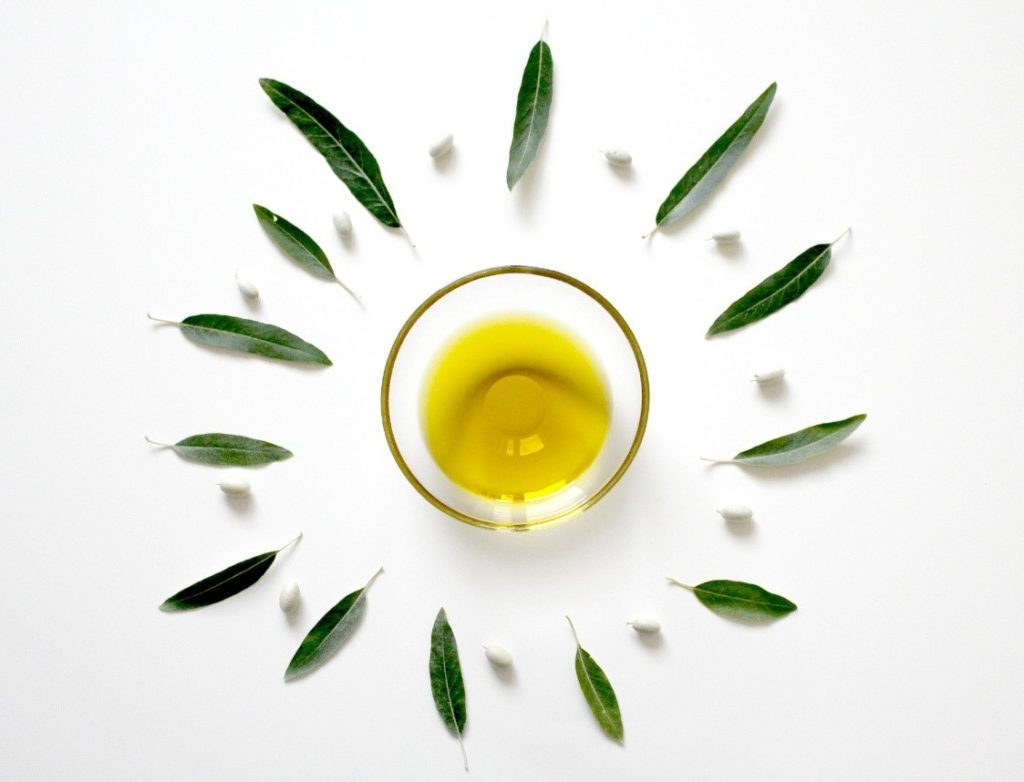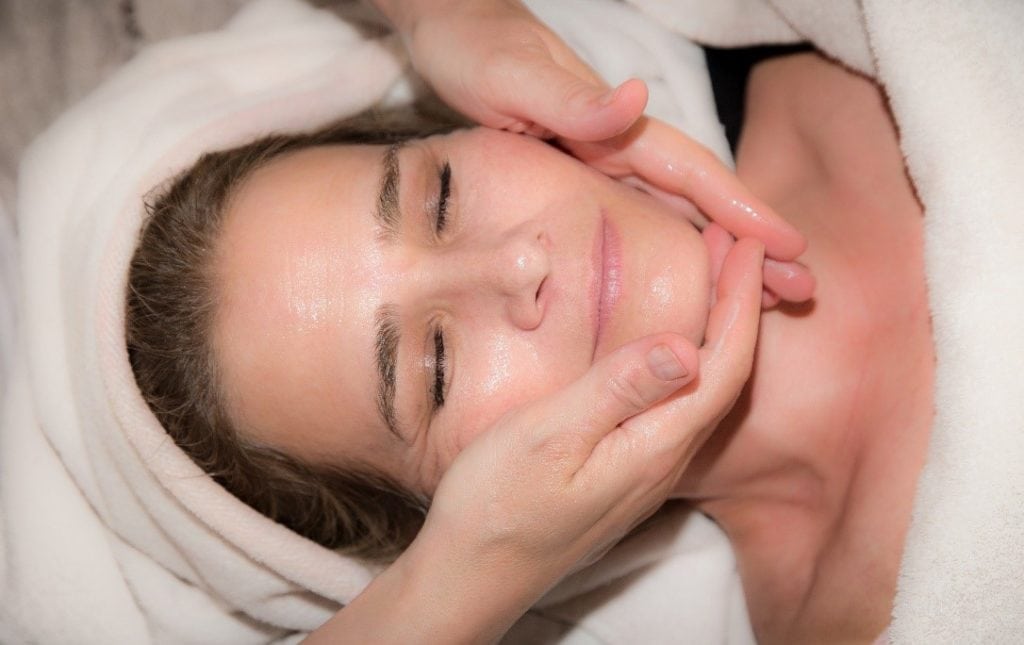Research Shows That The Mediterranean Diet, Including The Best Extra Virgin Olive Oil Can Help Combat The Signs Of Ageing
Updated 21st September 2021

We have all suffered in some way due to the Covid pandemic and many have reported accelerated signs of physical or mental ageing as a result.
But did you know that some simple steps, including the adoption of a Mediterranean diet, rich in unsaturated fats such as extra virgin olive oil can help your body combat ill health and stress?
Last year, research from the University of Navarra in Pamplona, Spain, studied the effect of diet on telomeres, or segments of DNA at the ends of each chromosome that become shorter every time a cell divides. If they get too short to do their job, the cells will cease working properly and, in turn, we will age more quickly. *
The research, which was reported in The American Journal of Clinical Nutrition, revealed that – from the 900 people aged over 57 studied- those who ate the most ultra-processed foods had twice the incidence of short telomeres than others, and therefore an increased rate of ageing.
In contrast, research last year in the journal Advances in Nutrition, reported that the more people adhere to a Mediterranean diet, the longer are their telomeres.
It comes as no surprise that we have turned in abundance to a greater reliance on processed junk food during lockdown, which – according to the research stated above – can cause body-wide inflammation that damages telomeres and DNA.
The advice, from the combined findings of this research therefore suggests that incorporating more vegetables, fruit, nuts, beans, cereals, grains, fish and unsaturated fats in your diet as well as reducing your intake of meat and dairy can help protect the role of these vital telomeres.
Olive Oil in Historical Skincare
Olive oil has a long history of being used as a home remedy for skincare. Egyptians used it alongside beeswax as a cleanser, moisturiser, and antibacterial agent since the times of the Pharaohs. Cleopatra was said to use olive oil as a skin treatment, along with her other renowned beauty treatments such as her infamous milk baths and honey facials.
Archaeological finds proving that the Minoans used olive oil in their daily lives are found everywhere in Crete. One particularly impressive discovery is the untouched olives with the flesh preserved, found at the bottom of a cup sunk in a water cistern at the Minoan Palace of Kato Zakros. The Minoans used olive oil in their diet, as a cleanser instead of soap, as the base for scents and ointments, as a medicine, in tanning, for lighting and to protect delicate surfaces.
Writings of major ancient philosophers and physicians such as Hippocrates, Aristotle, Philostratus, and Lucian were analysed in-depth as part of research into the use of olive oil by the Ancient Greeks. According to the results, the use of massage, together with olive oil rub, helped to reduce muscle fatigue, potentially reduce ageing, to remove lactic acid, and to prevent the occurrence of sports injuries through flexibility provided to the skin of athletes. The therapeutic use of oil in the ancient world was fully recognised; and as a result Athenian athlothetes (sponsors of sporting events) provided free oil to all sport facilities where athletes could make free use of it.
Olive oil was also a valuable winner’s prize in Athenian athletic games. The city of Athens needed about 70,000 kilos of oil to reward the winners of the Panathenian Games, held every four years. The winner’s prize varied according to the event. The best runner received about 70 amphoras of 35-40 kilos, i.e. 2,500 kilos of olive oil, while the chariot-race winner got double, i.e. about 5,000 kilos. These prizes were worth a lot of money if you consider that a day’s wages for an Athenian craftsman was 1 Attic drachma, the equivalent of about 3 kilos of olive oil. And that was just the price of common oil, whereas the winner’s oil was much better quality and more expensive. Of course no-one would buy this oil to eat; instead it was used for anointing the bodies of rich young athletes.
Olive Oil in Historical Skincare
Olive oil has a long history of being used as a home remedy for skincare. Egyptians used it alongside beeswax as a cleanser, moisturiser, and antibacterial agent since the times of the Pharaohs. Cleopatra was said to use olive oil as a skin treatment, along with her other renowned beauty treatments such as her infamous milk baths and honey facials.
Archaeological finds proving that the Minoans used olive oil in their daily lives are found everywhere in Crete. One particularly impressive discovery is the untouched olives with the flesh preserved, found at the bottom of a cup sunk in a water cistern at the Minoan Palace of Kato Zakros. The Minoans used olive oil in their diet, as a cleanser instead of soap, as the base for scents and ointments, as a medicine, in tanning, for lighting and to protect delicate surfaces.
Writings of major ancient philosophers and physicians such as Hippocrates, Aristotle, Philostratus, and Lucian were analysed in-depth as part of research into the use of olive oil by the Ancient Greeks. According to the results, the use of massage, together with olive oil rub, helped to reduce muscle fatigue, to remove lactic acid, and to prevent the occurrence of sports injuries through flexibility provided to the skin of athletes. The therapeutic use of oil in the ancient world was fully recognised; and as a result Athenian athlothetes (sponsors of sporting events) provided free oil to all sport facilities where athletes could make free use of it.
Olive oil was also a valuable winner’s prize in Athenian athletic games. The city of Athens needed about 70,000 kilos of oil to reward the winners of the Panathenian Games, held every four years. The winner’s prize varied according to the event. The best runner received about 70 amphoras of 35-40 kilos, i.e. 2,500 kilos of olive oil, while the chariot-race winner got double, i.e. about 5,000 kilos. These prizes were worth a lot of money if you consider that a day’s wages for an Athenian craftsman was 1 Attic drachma, the equivalent of about 3 kilos of olive oil. And that was just the price of common oil, whereas the winner’s oil was much better quality and more expensive. Of course no-one would buy this oil to eat; instead it was used for anointing the bodies of rich young athletes.
Extra Virgin Olive Oil Can Prevent Signs of Skin Ageing

For those who are concerned about the more cosmetic signs of ageing, the great news is that Extra Virgin Olive Oil has also been shown to be an outstanding moisturiser to keep the skin looking its radiant best for longer.
Extra virgin olive oil has properties and antioxidants that can improve the health of your skin to help you be glowing and confident as you eat right. Because the oil’s fat composition is very similar to that of human skin, it rarely causes allergic reactions. In addition, extra virgin olive oil absorbs quickly into the skin and after 15 minutes there is no trace of it. It also helps lock in moisture in the skin. Simply put some in your hands and start rubbing it over your entire body and face.
The high percentage of unsaturated fat and vitamins A and E are helpful in preventing sun damage, also work on the outside to soothe and replenish, particularly sensitive skin. It is also pure, and unmixed with anything but water, unlike other oils.
There is only one ingredient in extra virgin olive oil…olive oil. If you go into your bathroom and check out the ingredient list on your moisturizer, you will see a range of chemical additives. Why use something with that many ingredients when you can just use a naturally occurring extra virgin olive oil?
From your head to your toes, extra virgin olive oil can be used in a variety of skin care routines that provides an all-natural alternative to soaps and creams that contain harsh chemicals. Here are five quick and easy ways you can take care of your skin with one simple ingredient, extra virgin olive oil.
Extra Virgin Olive Oil Prevents Signs of Aging
One of the top health benefits of extra virgin olive oil is its antioxidants that can improve your health inside and out. The antioxidant hydroxytyrosal helps to improve your skin including preventing aging, according to olive oil expert Paul Vossen. With its Vitamin E properties, extra virgin olive oil protects the skin from harmful damage and can help prevent wrinkles and fine lines.
Extra Virgin Olive Oil Soften Cuticles
Protect your nail cuticles from drying and ripping in the cold winter months and soften them up with some extra virgin olive oil. By caring for your cuticles, you can also strengthen your nails and improve the softness of your hands, all at the same time with one natural ingredient.
It May Help Prevent Cancer
We love the sun, but sometimes, our skin doesn’t. If you’ve spent a little too much time in the sun and have a resulting painful sunburn, the antioxidant properties in extra virgin olive oil can help alleviate that painful sting. These antioxidant properties also could reduce potential UVB-ray skin tumors. Just be sure to put your extra virgin olive oil on after your time in the sun, not before. With the protection from free radicals, extra virgin olive oil provides a great after-sun care routine. An article from Livestrong also notes how oil application can also fight off cancer-causing cells. The powerful properties in extra virgin olive oil make it a great choice for protecting your health both inside and out.
Remove Makeup With Extra Virgin Olive Oil
Looking for a way to take of your day’s makeup without strong chemicals? A few dabs of extra virgin olive oil clings to the oil on your skin to free pores and remove that stubborn makeup. Follow it up with a facial cleanser for a great skin care routine.
Moisturize With Extra Virgin Olive Oil
Extra virgin olive oil’s smoothing properties make it a great option for an all-natural moisturizer. For especially dry skin, you can massage some oil on your slightly damp skin. Doing so not only adds much needed smoothness to your hands, it also protects your skin from further damage. Be sure to not use too much oil on your face, which may lead to clogged pores. For a great hand scrub, mix sugar and oil together to make a natural exfoliant that keeps your hands super smooth.
For itchy, dry skin, the compound found in extra virgin olive oil called oleocanthal calms and soothes irritated skin. When regular body lotion isn’t enough, slathering on some extra virgin olive oil can be a great way to get back that silky smooth skin.
Get On Your Way To Better Skin
To achieve better, glowing skin, you don’t need to spend hundreds of dollars on specialized skin care products. The properties found in extra virgin olive oil can help boost your health from the inside out.
